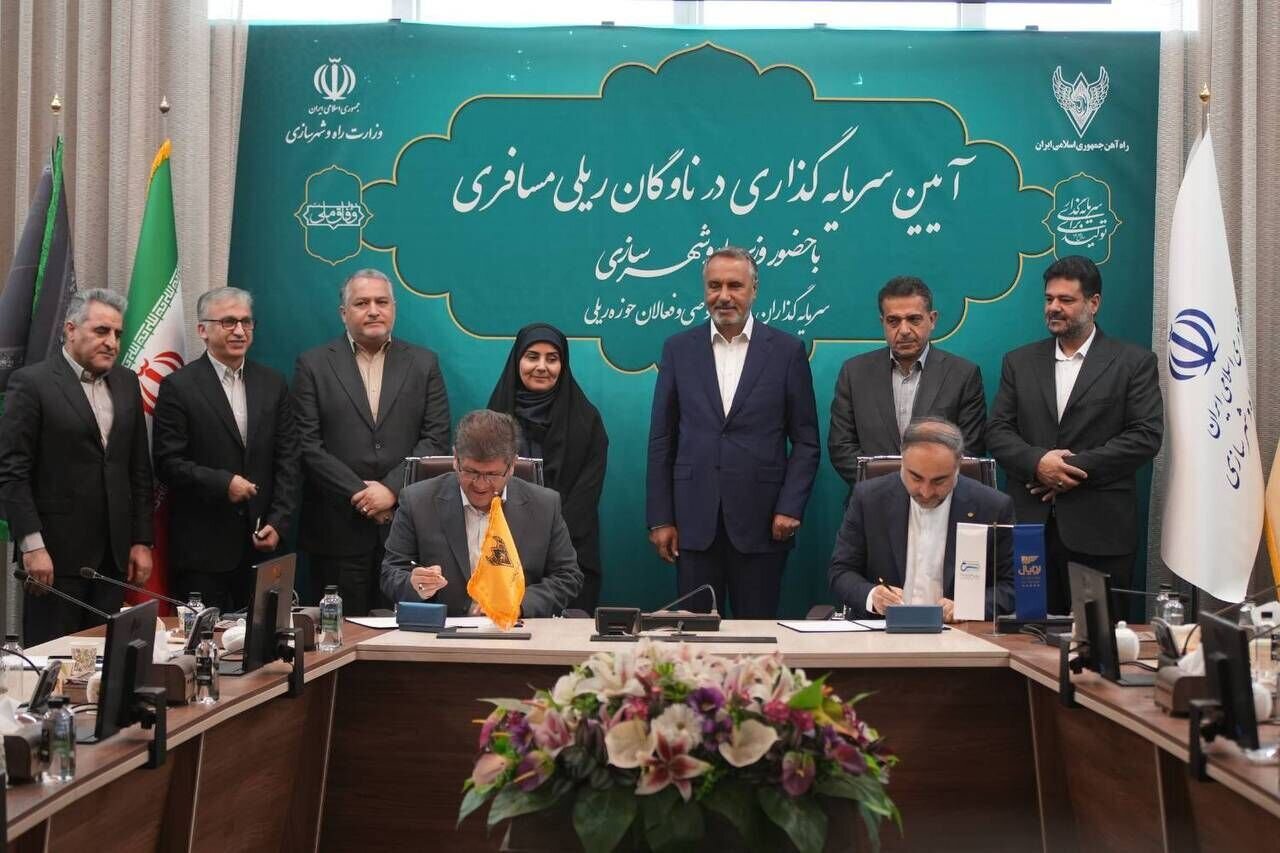RAI signs $176m railway investment agreement to upgrade passenger fleet

TEHRAN – The Islamic Republic of Iran Railways (known as RAI) signed an investment agreement worth 882 trillion rials (approximately $176 million) with Raja Rail Transportation Company and Rail Tarabar Saba Company to develop and upgrade the country’s passenger rail fleet.
The agreement was signed on Sunday in the presence of the minister of transport and urban development, the head of the Iranian parliament’s civil engineering committee, the managing director of RAI, and senior officials from Raja, Rail Tarabar Saba, the Fuel Consumption Optimization Company, and Wagon Pars.
Under the agreement with Rail Tarabar Saba, two projects are planned: the purchase of 70 new five-star Royal passenger railcars and the refurbishment of 37 existing cars to the same standard.
The agreement with Raja Rail Company includes the purchase of 60 new five-star Royal passenger cars and the refurbishment of 100 existing passenger wagons.
The signing comes as Iran intensifies efforts to modernize its railway infrastructure and boost domestic capacity through joint public-private investment.
In recent months, officials have repeatedly emphasized the need to reduce dependence on foreign suppliers, support local manufacturers, and enhance the quality of passenger services in line with international standards.
The Transport Ministry has outlined a broader plan to expand the country’s passenger and cargo rail capacity as part of its long-term transportation strategy.
The push includes efforts to connect major cities through high-speed corridors and link Iran more efficiently to neighboring markets via the International North–South Transit Corridor (INSTC).
Iran’s increased investment in rail transport also reflects a shift in priorities amid rising fuel costs and environmental concerns.
Upgrading the rail fleet is seen as a critical step toward creating a more sustainable and efficient national transportation system, while also stimulating growth in domestic industries linked to rail manufacturing and maintenance.
The move aligns with the government’s broader economic agenda, which seeks to counteract the effects of international sanctions by relying more heavily on internal resources and partnerships with the private sector.
In mid-June, RAI Head Jabarali Zakeri highlighted the country’s commitment to enhancing international rail cooperation, saying that active rail diplomacy can accelerate freight movement, reduce costs, and drive economic growth.
Speaking at a meeting of the RAI’s board and deputy directors, the official said: “Expanding international rail transport partnerships will not only facilitate economic prosperity but also increase the speed of cargo movement and cut operational costs.”
He noted that enhancing safety standards and upgrading monitoring technologies remain top priorities to ensure low-risk, high-security rail travel.
Highlighting RAI’s ongoing initiatives, Zakeri said efforts are underway to improve train safety, customer service, locomotive readiness, international rail engagement, and the overall speed of freight operations.
“All locomotives are regularly inspected and undergo technical maintenance to ensure optimal performance and prevent any disruptions in railway operations,” he noted.
Zakeri also stressed the importance of strengthening rail ties with neighboring countries. “Expanding international cooperation in the rail sector can significantly boost trade and cultural exchanges, while also contributing to regional economic prosperity,” he said.
He added that by adopting advanced technologies and optimizing infrastructure, the country aims to increase the speed of freight movement across rail corridors—ultimately lowering costs and enhancing transport sector productivity.
EF/MA
Leave a Comment